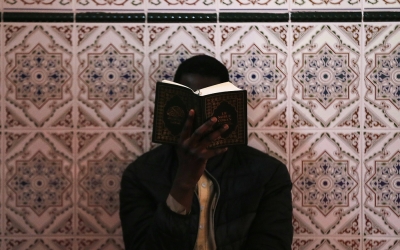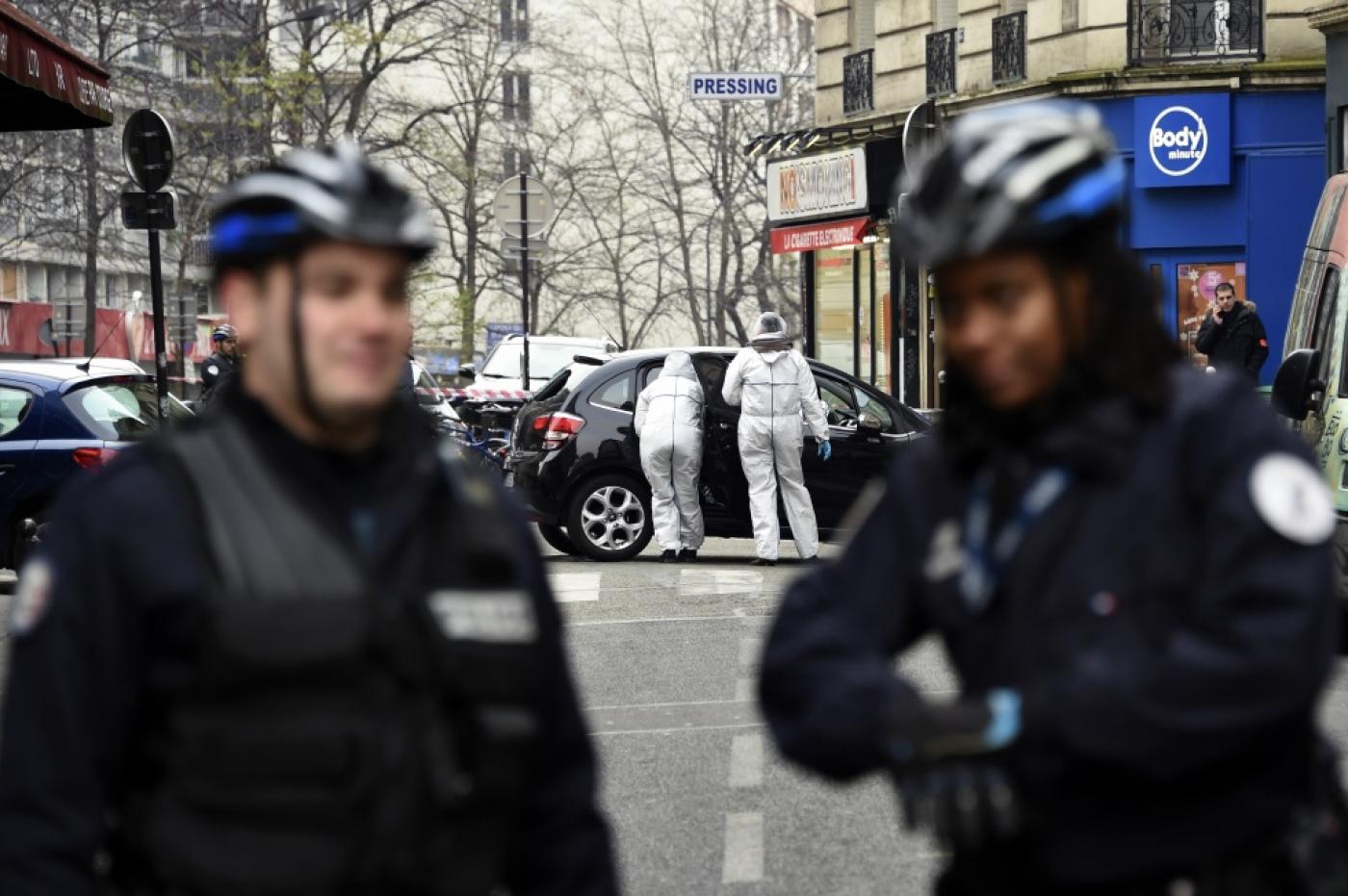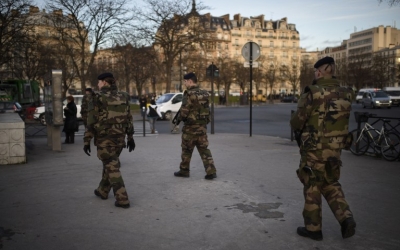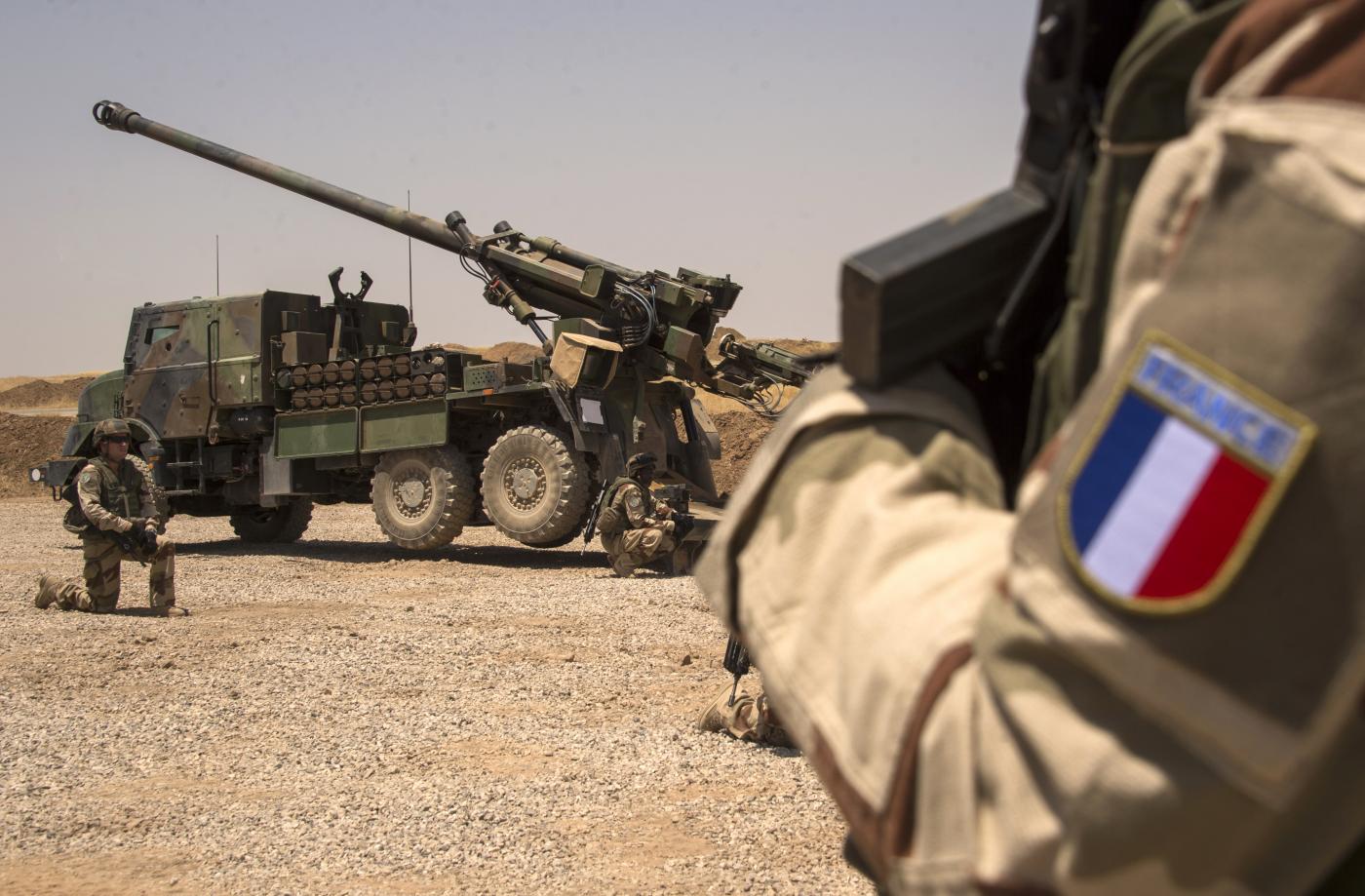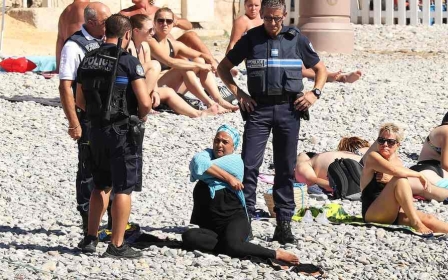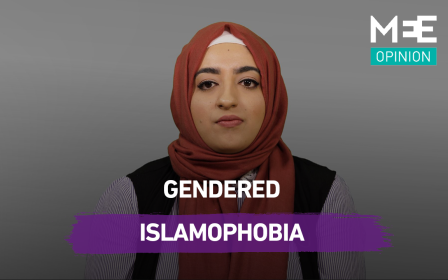The 'deradicalisation' business: How French attacks spawned a counter-extremism industry
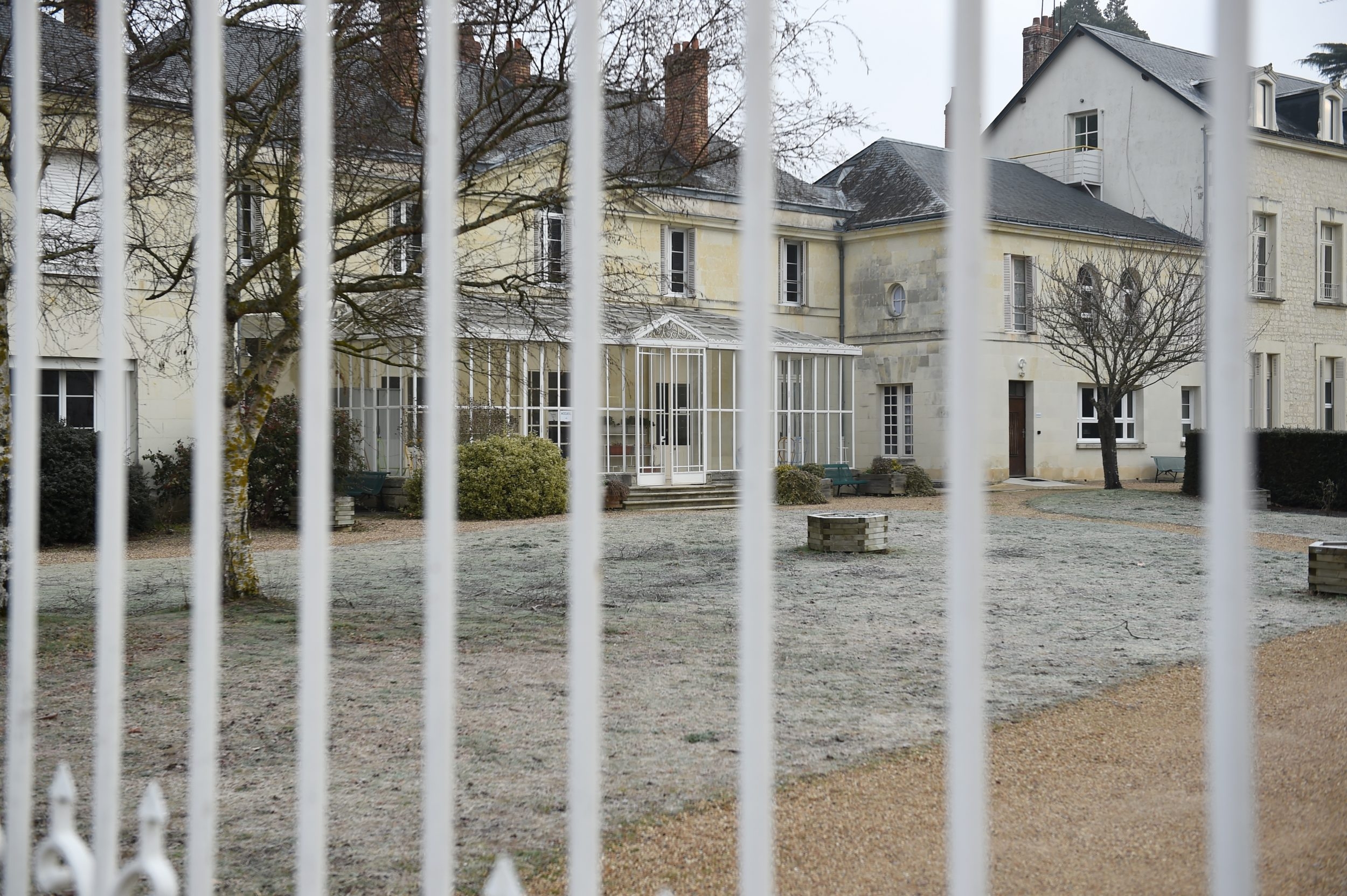
A spate of attacks in France since 2015 linked to the Islamic State (IS) group and al-Qaeda has seen the government unveil a succession of new policies aimed at tackling the issue of so-called "radicalisation", as well as a series of initiatives promoting its counterpart, known as "deradicalisation".
But insiders, echoing concerns raised in a French Senate report, are increasingly questioning the effectiveness and value for money offered by such schemes, which critics say are based on "fuzzy" definitions of radicalisation which fail to stand up to legal scrutiny.
France's current counter-radicalisation strategy, which draws on the 2014 Anti-Terrorism Plan (PLAT) and the 2016 Action Plan Against Radicalisation and Terrorism (PART), consists of three main prevention strands.
First, there is what is called primary prevention.
‘This means working on the ground with both young people and local officials," Ouisa Kies, a sociologist and the president of Citizen Dialogue, an organisation dedicated to issues of delinquency, told Middle East Eye.
New MEE newsletter: Jerusalem Dispatch
Sign up to get the latest insights and analysis on Israel-Palestine, alongside Turkey Unpacked and other MEE newsletters
Secondary prevention is targeted at those identified by the Stop-Jihadism platform, created in January 2015, or by other sources, such as family, work and school networks.
Tertiary prevention then focuses on individuals convicted of “associating with criminals with a view to committing acts of terrorism”.
The most recent set of deradicalisation measures was introduced by the government of French Prime Minister Edouard Philippe in 2018.
One of these is the Prevent to Protect plan, which involves raising awareness among state and private stakeholders, with a particular focus on schools, sports federations or businesses.
New measures concerning individuals under judicial control were also announced as part of the plan, namely the creation of Radicalisation Assessment Quarters ("quartiers d’evaluation de la radicalisation", or QERs) to evaluate the “level of radicalisation” of detainees reported as extremist.
In the wake of the November 2015 Paris attacks, most prevention measures were directed at prisons, in response to the fact that many of the perpetrators of some of France’s deadliest recent attacks had spent time behind bars.
They include Mohamed Merah, who killed seven people in a series of attacks in southwest France in 2012; Cherif Kouachi, one of two brothers who killed 12 people in an attack on the office of Charlie Hebdo magazine in January 2015, Amedy Coulibaly, a friend of the Kouachi brothers who killed a police officer and four hostages in a kosher supermarket in Paris in a related attack; and Mehdi Nemmouche, a French national who killed four people in Brussels's Jewish Museum in May 2014.
But Kies told MEE that "figures released by the Ministry of Justice in 2015 show that 86 percent of all detainees incarcerated on terrorism charges - on conspiring to commit a terrorist offence - were first-time inmates".
‘This," she said, "indicates that processes of radicalisation are taking place outside of detention facilities, that there are other paths of radicalisation, though prison may in fact speed up the process."
Judicial monitoring outside the prison system
Apart from prison monitoring programmes, the Philippe plan announced the creation of three new centres for reintegrating reported radicals, "to provide residents with personalised educational, psychological and social care treatments that actually work".
Multidisciplinary teams comprised of tutors, psychologists, religious advisors (imams) and social workers carry out a series of meetings with the residents over their convictions and goals, as well as follow up on their integration into society and the workplace upon release.
The definition of radicalisation is still fuzzy. I prefer to talk about processes of social exclusion that may or may not lead to violent offenses
- Ouisa Kies, sociologist
Enforced by court order, this monitoring programme relates to individuals either convicted or awaiting trial for terrorism-related offences. People reported for what is considered extremism-related violence by either their entourage or the Stop-Jihadist platform are also monitored.
The out-of-prison deradicalisation programme is based on the “RIVE” experiment (Research and Intervention on Extremist Violence), launched in the aftermath of the Saint-Etienne-du-Rouvray attacks of July 2016, when intelligence blunders failed to prevent the murder of Jacques Hamel, a priest killed in his Normandy church.
One of the killers, Adel Kermiche, had been monitored by the French national intelligence agency, the DGSI, and ordered to wear an electronic bracelet.
The experimental programme was also a response to the failure of the previous model that was to bring together suspected radicals at a deradicalisation facility, the Pontourny centre. Now closed because of a lack of residents, the facility is symbolic of the trial-and-error nature of French public policy on radicalisation.
Kies believes that “600 individuals are currently under judicial control outside the prison system". "Among them, 250 have already been sentenced or have been reported as radicalised and are awaiting trial for common law offences.”
MEE spoke to an authority on such programmes, who asked to remain anonymous.
"People of all stripes are being monitored, not just fighters who make bombs. Sometimes it’s a matter of [sharing] propaganda, of sending money to a child who went to Syria to support IS. This is considered to be a form of terrorist financing," the source said.
French government officials say there is an urgent need for action: some 40 detainees condemned for terrorism-related offences were released last year, roughly 20 in 2018 and another 20 in 2019; 512 inmates are currently serving sentences handed out in terrorist cases.
On top of this, another 1,200 prisoners have been reported for radicalisation and convicted for common law offences. French Minister of Justice Nicole Belloubet says approximately 30 percent of them, some 450 people, are slated for release in 2019.
Radicalisation, denunciation and keeping quiet
Sociologist Farhad Khosrokhavar describes radicalisation as "the process by which an individual or a group engage in violent actions directly linked to extremist ideologies with political, social or religious implications that challenge the established political, social or cultural order”.
The concept has no legal definition, but in court cases it is generally interpreted from the viewpoint of terrorism and material actions, including damage to persons or property, involvement with proscribed terrorist organisations, the funding of proscribed terrorist activities, and violations related to weapons, explosives or nuclear materials.
Crimes, in other words, that exist regardless of religious considerations. Yet in France, counter-radicalisation efforts are focused solely on religious and primarily Islamic factors.
According to the Stop-Jihadism platform, "radicalisation is not just a matter of challenging or rejecting the established order. Jihadist radicalisation [the only form of radicalisation mentioned] is driven by the desire to replace democracy with a theocracy based on Islamic law (Sharia law) by using violence and arms".
‘Too much money is being spent on the problem. Ten years ago, the focus was on cults. Today it has shifted to radicalisation, to the detriment of other urgent questions’
- A prison guard
No mention is made of far-right movements, whose extremist views and crusade against the established order are of concern to such insiders as Patrick Calvar, a former DGSI director.
The Collective Against Islamophobia in France (CCIF) says that reports of radicalisation may have triggered a "denunciation trend".
The organisation’s 2018 annual report states that “slanderous accusations have dire consequences on the lives of victims. To discredit a spouse in divorce proceedings, or to take revenge on a neighbour, people are being denounced to the authorities as being 'radicalised'".
"The wave of denunciations is also affecting the public service sector. Doctors, medical centres and schools are favouring random reports over dialogue. Yet in the overwhelming majority of cases, the cases are closed - but only after the damage is done".
One of the signs of radicalisation listed on the Stop-Jihadism platform is the "systematic rejection of a generally held version of an event".
And yet on that very same platform, France’s participation in the international coalition "intervening" in Iraq is mentioned. "France provides advice and support to local forces in Iraq," it says.
So, to question the lawfulness or legitimacy of this so-called "intervention", or French foreign policy in general, could therefore be considered a sign of radicalisation according to the above definition.
Another indication mentioned by the platform includes "victimising rhetoric" that "transforms real or imagined wounds into feelings of prejudice. Individuals feel victimised. In the case of jihadism, they believe society is targeting Islam".
Here again, to express concern over the growing number of laws and political and media statements aimed at Muslims in France, or to simply believe that French society is plagued by pervasive Islamophobia, could be grounds for establishing radicalisation.
Avoiding more pressing questions
Not everyone in France agrees with such deradicalisation policies. For some people, including local authorities and prison officials, the issue of radicalisation seems to conveniently minimise other more pressing economic and social questions.
MEE spoke to a prison guard who asked to remain anonymous.
‘Too much money is being spent on the problem. Ten years ago, the focus was on cults. Today it has shifted to radicalisation, to the detriment of other urgent questions," the guard said.
Kies agrees. Radicalisation, she says, is a serious problem, but she has been faced with other more pressing challenges in many of the cities where she has worked over the years.
“I’m talking about impoverished cities and underprivileged neighbourhoods, where city officials and local inhabitants are aware that radicalisation is the least of their problems. For some people, it is easier to see everything through the lens of radicalisation, as a stopgap response to genuine social and economic hardship.”
She also says that some city officials are reluctant to deal with issues related to radicalisation.
“City officials are reluctant to adopt measures to fight radicalisation. Some even refuse to work on the issue point blank, convinced that the government is ignoring other more pressing subjects.”
Kies says here, too, it is the meaning given to the term "radicalisation" that is problematic.
"The definition of radicalisation is still fuzzy. I prefer to talk about processes of social exclusion that may or may not lead to violent offences. Only then can we encompass all of the processes of exclusion."
Work on the ground, she says, is essential to tackling the issue.
"National deradicalisation policies don’t work. We have to intervene locally. Drug trafficking is the number one problem in some cities. Underage prostitution is also a growing concern. Domestic violence kills more women than terrorism," the sociologist added.
The ‘deradicalisation business’
The emergence of a 'deradicalisation market' backed by public money is another major stumbling block according to critics. A recent Senate report condemned it as a "waste of public money" and called for a "paradigm shift".
“The only people who believe in deradicalisation are the ones who make a living from it,” the report read.
Another government study goes even further.
"The wave of attacks that saw deradicalisation become a legitimate political priority was a financial boon for certain stakeholders. Recent hearings make mention of both the 'subsidy drain' and the 'deradicalisation business' that are attracting non-profit associations from the social sector, which lacks financial wherewithal following cutbacks in government funding," it said.
"Some associations make a living off of deradicalisation programmes", another anonymous source told MEE. "There may be conflicts of interest as well, with city officials founding non-profit associations specialising in issues of radicalisation to receive public funds, for instance."
The Pontourny centre, for example, had an annual operating budget of roughly 2.5m euros. The Senate report found that “running the centre, even ‘empty’, generated a profit”.
Another advantage for the government of the emergence of a private "deradicalisation" sector had been that it allowed it to "outsource the handling of suspected religious extremists to facilities not subject to the principle of secularism", which requires public bodies to show respect for freedom of thought and freedom of religion, the source added.
- This article is an edited translation of a story that was originally published by Middle East Eye's French website.
Middle East Eye delivers independent and unrivalled coverage and analysis of the Middle East, North Africa and beyond. To learn more about republishing this content and the associated fees, please fill out this form. More about MEE can be found here.


